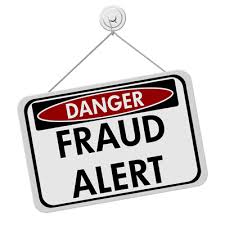 Fraud is a serious concern for small businesses, with 1 in 4 falling foul to some form of fraud. The digitization of more areas of business has also led to sharp increase in cybercrime. We trust employees and partners to have our best interests at heart, but SMEs still lose tens of millions of dollars every year.
Fraud is a serious concern for small businesses, with 1 in 4 falling foul to some form of fraud. The digitization of more areas of business has also led to sharp increase in cybercrime. We trust employees and partners to have our best interests at heart, but SMEs still lose tens of millions of dollars every year.
As companies grow, they are at an increased risk of impersonation scams. The perpetrators of these scams are usually trying to access personal details or steal money.
Being aware of all potential threats
Small businesses are more susceptible to many types of fraud. It’s important to make sure you’re aware of them all so you can build your processes and systems to minimize your exposure to potential threats. Here are just some of the most common threats a small business owner faces.
Fraud doesn’t have to be committed by an outside party. Many cases of fraud involve trusted employees or long-standing business partners. From the most basic skimming of money in a cash business, right through to compensation fraud where an employee fakes or exaggerates an injury to trick you out of additional money. Employees are also the most likely candidate to steal inventory or misuse business services, as well as an expense account. Setting up a Commercial security system is essential if you want to protect your business from theft and fraud.
Your internal accounting and payroll systems can also be subject to fraud. Whether it’s using a fake supplier account to embezzle money, or ordering personal items through company accounts, setting up a comprehensive system to check invoices to delivery notes, and cross-referencing the use of materials where ever possible will help to minimize the likelihood of this happening. Jumio’s Netverify provides complete identity solutions, which can help you to protect yourself against this kind of thing, The tech is there so, why not use it?
There are also the more traditional types of fraud to consider, such as bribery.
Data protection
Data protection laws have been under scrutiny recently. The introduction of the GDPR in the EU is one of the newest and most fundamental updates to regulations on how companies store and use data. Credit card numbers and personal information are worth a lot of money to bad actors. You must also ensure any proprietary information, such as trade secrets, is sufficiently protected.
Prevent fraud in your business
When you consider all of the potential threats, preventing fraud can initially feel impossible. However, there are many areas that crossover, and putting systems in place where your business is most susceptible will pay dividends for the security of your physical and digital assets.
The threats can vary depending on your business type. This means the first step is to identify any threats to your business. This could be card payments, cash, cheque fraud, or inventory going missing. You may need to invest in a fraud detection system in order to prevent the damages caused by fraud.
You should only accept cheques from customers and suppliers you trust. Only write on a cheque in pen and be sure to put a line through any empty spaces. If you suspect anything is wrong with the cheque or customer, ask them to use another payment method. Cheque the watermark on any cash you receive.
Know who you’re dealing with
If you have any doubts about a customer’s identity, you should gather as much information as possible before accepting any form of payment. If you use an online ordering system, you can add Visa or MasterCard security authentication to help put your mind at ease.
Keep track of your assets
Having a stock management system that gives real-time updates will help you to keep an eye on your inventory. You should be equally vigilant about cash, ensuring the amount you have is in line with your cash sales. Make a list of all your fixed and intangible assets. Make an action plan to ensure they are all protected. Once you have an accurate picture of your assets and a plan to help protect them, you should review it regularly to ensure everything is as you would expect. One asset people sometimes forget about is your brand. Your business is nothing without its reputation and intellectual property.
Educate your employees
Implementing clear policies is good, but will have a much bigger impact if you share the knowledge with your employees. Give them clear guidelines on how every process works, and let them know you take business fraud seriously and you’re a vigilant employer. These policies can include employee conduct, a password policy, and guidelines on how to record all the procedures.
Be as comprehensive as you can
Perform regular backups of all your data and files. This will help minimize the trouble caused if you or your host falls victim to a cyber attack. While the potential threats are great, good business practices and common sense can help to counter the majority of them.




No Comments